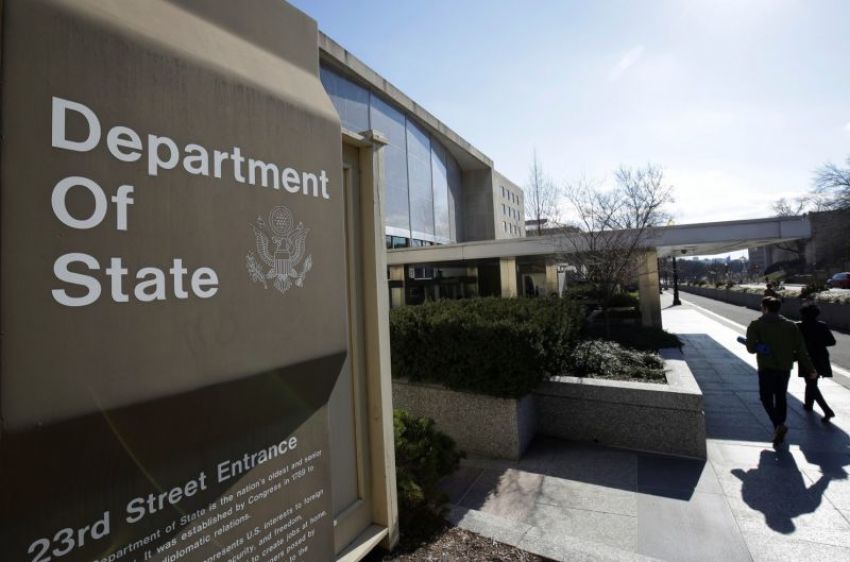State Dept. adds Russia to religious freedom 'watch list,' labels Pakistan a 'country of concern'

The U.S. State Department has added Russia to its “special watch list” for religious freedom violators and added Pakistan to its list of “countries of particular” concern.
Secretary of State Mike Pompeo announced Tuesday decisions made on Nov. 28 to list 10 countries as “countries of particular concern,” a designation required under the International Religious Freedom Act to single out the countries where governments have “engaged in or tolerated systematic, ongoing and egregious violations of religious freedom.”
The CPC designation, the highest U.S. government designation for religious freedom violations committed by foreign governments, carries with it the potential for the U.S. government to enact sanctions and other diplomatic actions to pressure change in those countries.
After years of outrage from human rights and religious freedom activists over the ongoing abuses against Christians and other religious minorities, Muslim-majority Pakistan was designated as a CPC for the first time.
Pakistan ranks as the fifth worst country in the world for Christian persecution, according to Open Doors USA’s World Watch List.
“This Administration has had the courage to hold Pakistan accountable for Pakistan’s persistent and systemic failures to protect the civil and human rights of religious minorities,” Republican New Jersey Rep. Chris Smith, the author of the International Religious Freedom Act of 2016, said in a statement. “This designation gives hope and voice to suffering Shia, Christian, Hindu, Ahmadi, and other minority citizens whose very presence counters religious extremism in Pakistan.”
The other nine countries designated as CPCs — Burma, China, Eritrea, Iran, North Korea, Sudan, Saudi Arabia, Tajikistan, and Turkmenistan — had already been listed by the State Department as CPCs.
Russia, Comoros and Uzbekistan were named to the State Department’s “Special Watch List,” a designation created by the IRFA of 2016 to single out countries that are “deemed not to meet all of the CPC criteria but who engaged in or tolerated severe violations of religious freedom.”
Although Russia has been put on the “Special Watch List,” some believe the U.S. should consider listing Russia as a CPC. The U.S. Commission on International Religious Freedom recommended a CPC designation for Russia earlier this year.
Russia has been criticized for banning Jehovah’s Witnesses and abusing its anti-extremism law to prosecute peaceful worshipers and nontraditional groups including Scientologists. Since the passing of Russia’s 2016 law criminalizing missionary activity, NGOs have reported 156 cases of religious groups being targeted that also include Christian groups from various denominations, according to U.S. Ambassador-at-large for International Religious Freedom Sam Brownback.
In a recent press briefing, Brownback explained that Russia has 145 prisoners jailed for religious beliefs, 106 of whom are Muslim. He stressed that Russia has “stepped up their oppression.”
“The violations of religious freedom in Russia are real, thoroughly documented, and at times brutal,” Smith asserted a House hearing he chaired of the Helsinki Commission on ‘Religious Freedom in Eurasia’ on Tuesday. “The Russian government deserves this — and next year we should consider carefully whether it belongs on the list of Countries of Particular Concern — the ‘CPC’ list for the worst of the worst.”
Pakistan was the first country to be put on the “Special Watch List” last year.
In 2017, Uzbekistan was listed as a CPC. Led by Foreign Minister Abdulaziz Kamilov, Uzbekistan took part in the State Department’s Ministerial for Religious Freedom in July and has now been taken off the CPC list.
However, USCIRF, a congressionally mandated advisory body consisting of religious freedom activists and scholars appointed by the president and congressional leaders, recommended that Uzbekistan stay on the CPC list.
“We question whether Uzbekistan has sufficiently improved to be moved from the CPC list to the Special Watch List,” USCIRF Chair Tenzin Dorjee said in a statement.
Among other things, USCIRF had voiced concerns about the thousands of Muslims imprisoned on dubious charges in Uzbekistan and the harassment of Christians.
In response to the State Department’s designation, the government of Pakistan accused the CPC designation of being a "unilateral and politically motivated pronouncement.”
According to Dawn.com, Pakistan’s Foreign Office declared in a statement Wednesday that it has safeguarded the rights of its citizens through the use of administrative mechanisms.
“Besides the clear biases reflected from these designations, there are serious questions over the credentials and impartiality of the self-proclaimed jury involved in this unwarranted exercise,” the Pakistan government's statement says.
Brownback told reporters this week that Pakistan is home to half of the world’s blasphemy law victims, as the law prohibiting insults against Islam is often used by Muslims to settle scores with religious minorities and can be punishable by death or life in prison.
Christian mother Asia Bibi spent nearly a decade in a Pakistani prison because Muslim field workers accused her of insulting the Muslim prophet Muhammad after an argument. Although she was acquitted from her death sentence by the Pakistan Supreme Court in October, she has been barred from leaving the country until her case can be reviewed.
Follow Samuel Smith on Twitter: @IamSamSmith
or Facebook: SamuelSmithCP



























